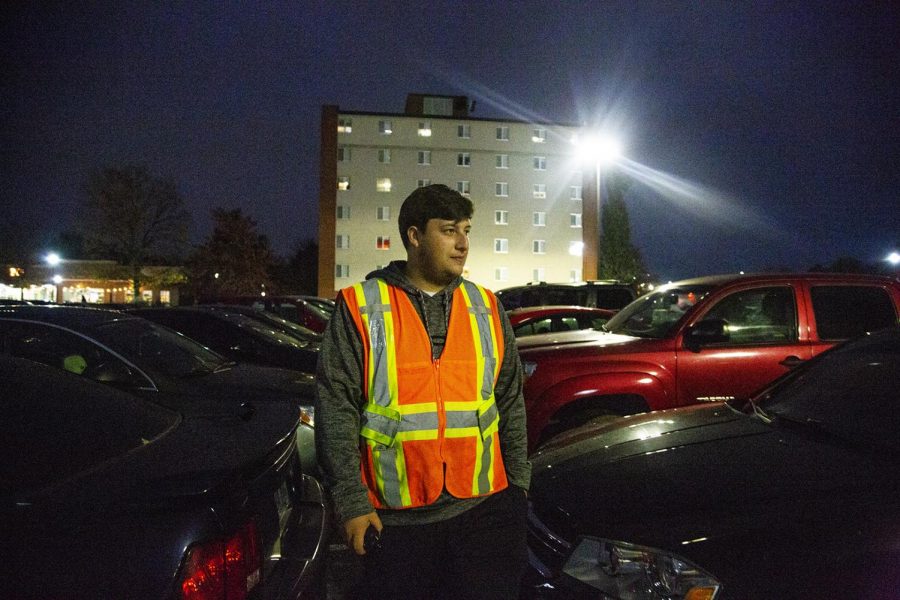PTS workers explain parking misconceptions
November 27, 2018
Keaton Walker begins his shift with Parking and Transportation by clocking in at the bottom of Parking Structure 2 and grabbing a patrol vehicle.
Walker is a senior at WKU and an enforcement officer for Parking and Transportation. Enforcement officers are the employees of Parking and Transportation that patrol the lots and hand out tickets. He began as an events worker in 2014 but then moved into enforcement during the fall of 2015.
Each officer has a device called a T2. With this, they can look people up and see their citation history, car model and other information. If a student has no previous citations, they will receive a warning.
“Most of the tickets we give are usually to the same people,” Walker said. “Very rarely is it new people that are getting tickets.”
While monitoring the Normal Street lot, Walker noticed a car parked in an improper zone. As he looked up the student on the T2, he saw they had three outstanding tickets, which means they would now receive a boot.
“This never happens,” Walker said. “We only hand out about three to four boots a semester.”
Walker said that in his experience the most common violations are students not having permits on display and parking in improper zones. He said lots with the most violations are Minton and Mimosa lots.
Walker demonstrated how to print the tickets on the T2. With a printer in the car, they are able to do it right then and there. He put the ticket in an envelope with all the instructions of what the student can do—either pay the ticket or make an appeal—and left it on the car.
He then got a bright orange boot out of the truck and put it on the tire.
“To get the boot off, the student can now either call and pay off the tickets or set up a payment plan,” Walker said.
Although Parking and Transportation can be strict, Walker said they are here to help students. Walker explained that the purpose of the officers is to enforce the rules but also to help people find other spots. They do not want to give tickets just as much as students don’t want to receive them.
According to Jennifer Tougas, the director of WKU Parking and Transportation, on-campus parking is better than it has been in previous years.
“Last year we were at 13,600 tickets annually,” Tougas said. “That’s down from 17,500 from way back when. We’ve actually decreased the number of citations we issue per student over the years.”
The reason for this can be attributed to a combination of things. Parking lots have improved, which has made it easier and faster to find parking.
“We really try to make it easy for people to understand, ‘This is where the legal parking is, and this is not where the legal parking is,’” Tougas said.
The parking plan as a whole has changed, as well. Tougas said everyone who lives on campus has a designated spot to park. As soon as people figure out how campus parking works and where they are supposed to go, there are less citations.
As both a student and enforcement officer, Walker has a different perspective on parking on campus than some of his fellow employees.
“I think the students understand me more,” Walker said. “If I am working an event and, say, Parking Structure 2 is closed, I tell students I go through the same thing. You got to just read the emails. It helps.”
If students can learn one thing about Parking and Transportation, Walker wants it to be that the enforcement officers are there to help.
“Everybody does have a certain place to be,” Walker said. “It’s a chain reaction.”
Walker thinks if everyone follows the rules and especially reads their emails, parking on campus will be smoother and better than ever.
Features reporter Eleanor Tolbert can be reached at 502-386-4608 and [email protected]. Follow on her on social media at @ellietolbert.















